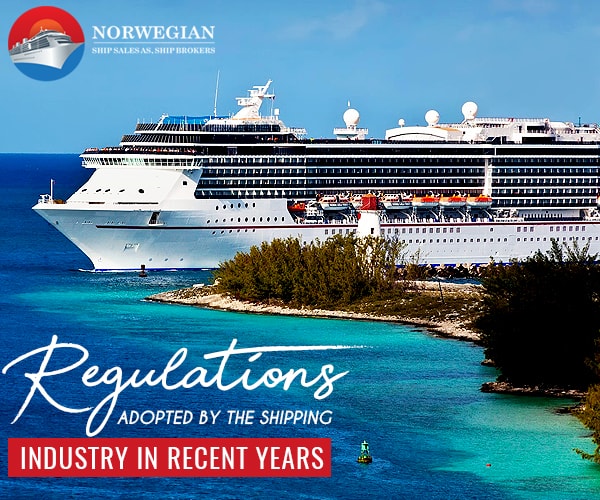The shipping industry is increasingly becoming a major contributor to the world’s pollution. According to recent surveys, the industry would be responsible for around 18% of harmful emissions by the year 2050. The sheer amount of fuel that is burnt to run the marine liners give off dirty, sulphur addled smoke that not only harms the delicate marine ecosystem but also the surrounding areas, leading to fatal consequences. The alarming rate at which pollution induced by the shipping industry is increasing has led the UN International Maritime Organisation to instil regulations that require shipping industries to invest in marine fuels that are low in sulphur and efficient cleaning systems that are also known as scrubbers. Alternative fuels like liquefied natural gases can also be used to reduce the emissions further while maintaining a balance in the ecosystem.
The year 2017 has been a productive year when it comes to the activation of regulations and important decisions that needed to be taken into consideration to reduce the overall toxic effect. Here are a few of the measures that were incorporated within the shipping industry to lessen the amount of pollution:
Ballast Water Management Systems
Vessels with a steel hull let water be used as a ballast to gave the liner stabilised. This diminishes the stress on the hull and also improves the propulsion. However, it poses a hindrance to the marine species that are found within the ballast water. According to recent developments that around 50,000 ships are supposed to be retro-fitted with a Ballast Water Management System approved by the Regulations Department. The water ballast management systems are a strict implementation on the ships and prompt measures are being taken to have them installed.
Energy Efficiency
Regulations related to energy and carbon dioxide efficiency are due to the climate change that is indeed one of the most crucial factors contributing to such strict measures. Ships are now required to have the cargo data reported along with the status of their energy efficiency efforts. The data and statistics collected will then be made. Plans to monitor and modify would be constructed accordingly to suit the needs of the ships.
Newer Regulations
The new regulations that are integrated are expected to come into effect for passenger ships in the year 2020. The changes that can be witnessed in the coming years are improved requirements concerning safety, an increase in the quantity and quality of lifeboats, watertight doors that need to always be open even while navigating through the waters and safety drills that need to be turned into a compulsion for all passenger ships. These new changes that require to be implemented also need the designs to be modified accordingly. Introduction of watertight doors and an increase in the ship’s breadth are a few such changes that need to be introduced.
Ships for sale in Norway are undergoing the process of being incorporated with the necessary designs and implementations, that which have been documented by Norwegian Ship Sales AS, one of the renowned ship brokers in the country. Enlist in the services at the earliest and get a complete overview of passenger ferries for sale.


